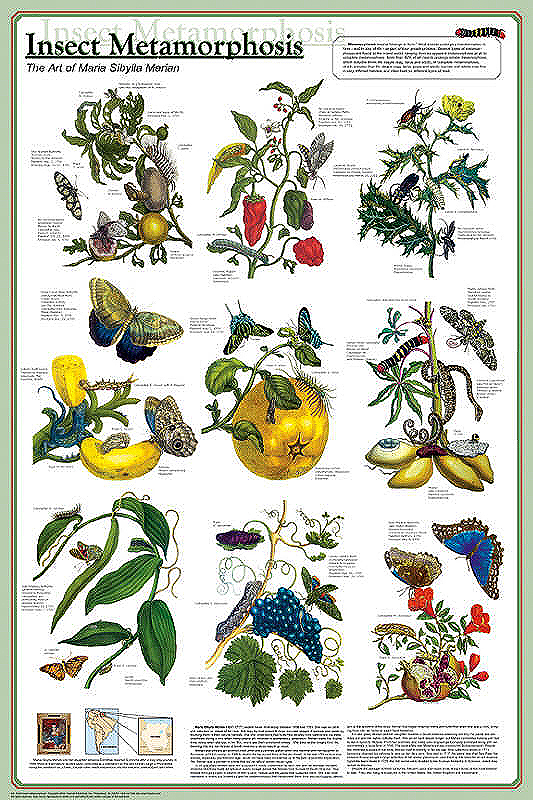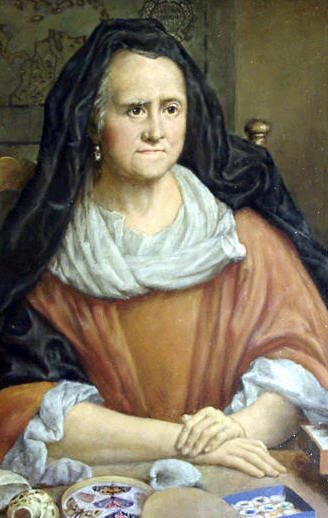|
|
|
Insect Metamorphism Poster |
|
 |
A223 Insect Metamorphosis
Artist
Anna Maria Sibylla Merian
created incredible
biological illustrations. Each of her masterpieces shows the
larva,
pupa and a mature specimen of the same insect. All are on an
exotic plant, complete with foliage, flowers and
fruit. The most amazing thing about these magnificent illustrations
is that she created them over 300 years ago and since then they have
not been surpassed in either beauty or scientific accuracy. Most
of her original paintings were purchase by Peter the Great and are on
display in Russia's famous Hermitage Museum. This
title shows nine of her most outstanding works. Introductory text
explains the subject and captions for each illustration cite the
specifics. An inset tells the fascinating story of this remarkable
lady, who was so many, many years ahead of her time.
|
| Laminated |
No. A223L |
$18.95 |
|
| Non-Laminated |
No. A223F |
$9.95 |
|
|
|
The pursuit of her
work in Suriname was an unusual endeavor, especially for a woman.
In general, men traveled in the colonies to find insects, make
collections and to work there, or to settle. Scientific
expeditions at this period of time were almost totally unknown and
the work of Merian raised many eyebrows. She succeeded, however,
in discovering a whole range of previously unknown animals and
plants in the interior of Surinam. Merian spent time studying and
classifying her findings and described them in great detail. Her
classification of butterflies and moths is still relevant today.
She used Native American names to refer to the plants, which
became used in Europe: |
 |
|
|
|
|